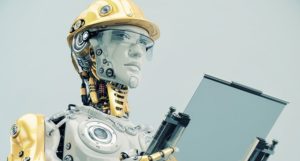
Credit: Shutterstock
More than a third of U.S. jobs could be at “high risk” of automation by the early 2030s, a percentage that’s greater than in Britain, Germany and Japan, according to a report released Friday. (emphasis added)
The analysis, by accounting and consulting firm PwC, emphasized that its estimates are based on the anticipated capabilities of robotics and artificial intelligence, and that the pace and direction of technological progress are “uncertain.”
It said that in the U.S., 38% of jobs could be at risk of automation, compared with 30% in Britain, 35% in Germany and 21% in Japan.
The main reason is not that the U.S. has more jobs in sectors that are universally ripe for automation, the report says; rather, it’s that more U.S. jobs in certain sectors are potentially vulnerable than, say, British jobs in the same sectors.
For example, the report says the financial and insurance sector has much higher possibility of automation in the U.S. than in Britain. That’s because, it says, American finance workers are less educated […]











Mr Treasury Secretary comment is an an example of how humans almost always fail to accurately predict the rate of technological change and adoption. It appears obvious to myself that the master slave hierarchical architecture of western society is headed for the trash bin simply because the numbers don’t add up in terms of demographics, debt load, food production and environmental toxicity. I’m sure the masters have other plans for the slave class but we have the opportunity to create decentralized communities based on local food production, renewable energy and people contributing directly to their community instead paying the government as a substitute. The ability to manufacture goods on demand with tech such as 3D printing may render the centralized production and global shipping model obsolescent.
Though it seems like our corpratocracies are here to stay..they may be in for a rude awakening just as our slave class will be when the centralized systems fall apart completely.